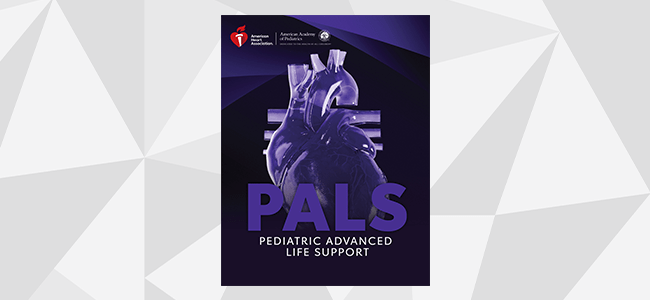小兒高級救命術
(PALS) Provider Course
The AHA’s Pediatric Advanced Life Support (PALS) course is a classroom, Instructor-led course which uses a series of videos and simulated pediatric emergencies. This course aims to improve outcomes for pediatric patients by preparing healthcare professionals to effectively recognize and intervene in patients with respiratory emergencies, shock, arrhythmias, and cardiopulmonary arrest by using high-performance team dynamics and high-quality individual skills. The AHA's PALS course has been updated to reflect science and education from the American Heart Association 2025 Guidelines for Cardiopulmonary Resuscitation and Emergency Cardiovascular Care.
This is the International version of the PALS Course. The training materials have been updated to include metric units of measure and other references that do not apply to students in the U.S. and Canada.

Supported Languages
國際英語
Formats Available
- Instructor-led training (ILT)
- Blended learning – HeartCode® PALS + hands-on skills session training
- Resuscitation Quality Improvement® (RQI®)
Additional languages are currently in development and will launch under the 2025 Guidelines.
Until then, please continue using the 2020 Guidelines versions for these languages.
- Perform high-quality cardiopulmonary resuscitation (CPR) per AHA basic life support (BLS) recommendations
- Recognition of patients who do and do not require immediate intervention
- Recognition of cardiopulmonary arrest early and initiation of CPR within 10 seconds
- Apply team dynamics
- Differentiation between respiratory distress and failure
- Early interventions for respiratory distress and failure
- Differentiation between compensated and decompensated (hypotensive) shock
- 休克處理的早期介入
- Differentiation between unstable and stable patients with arrhythmias
- 心律失常患者的不穩定性臨床特徵
- Post–cardiac arrest management